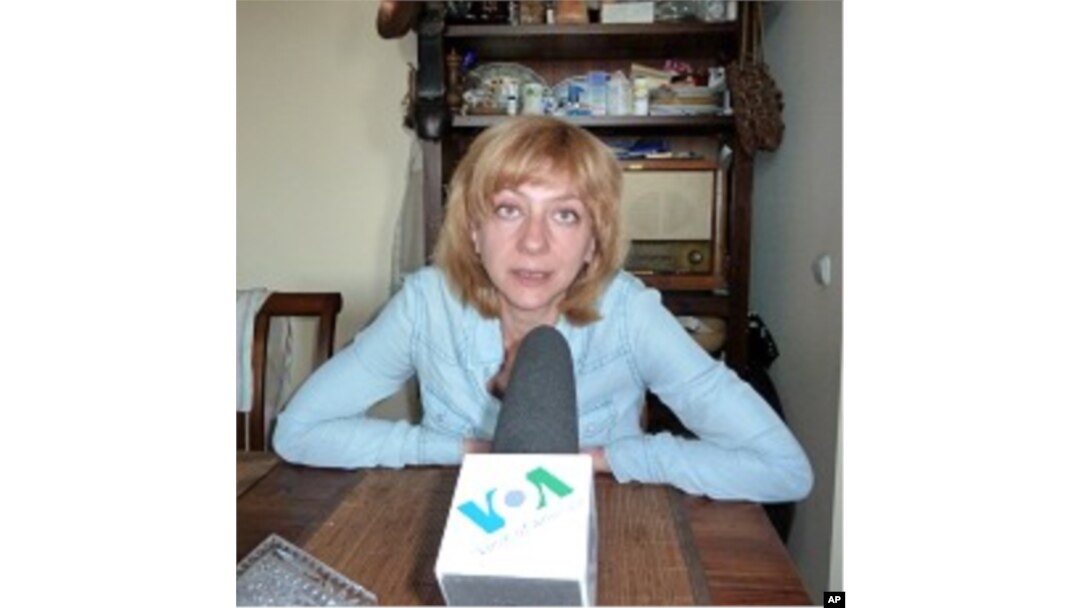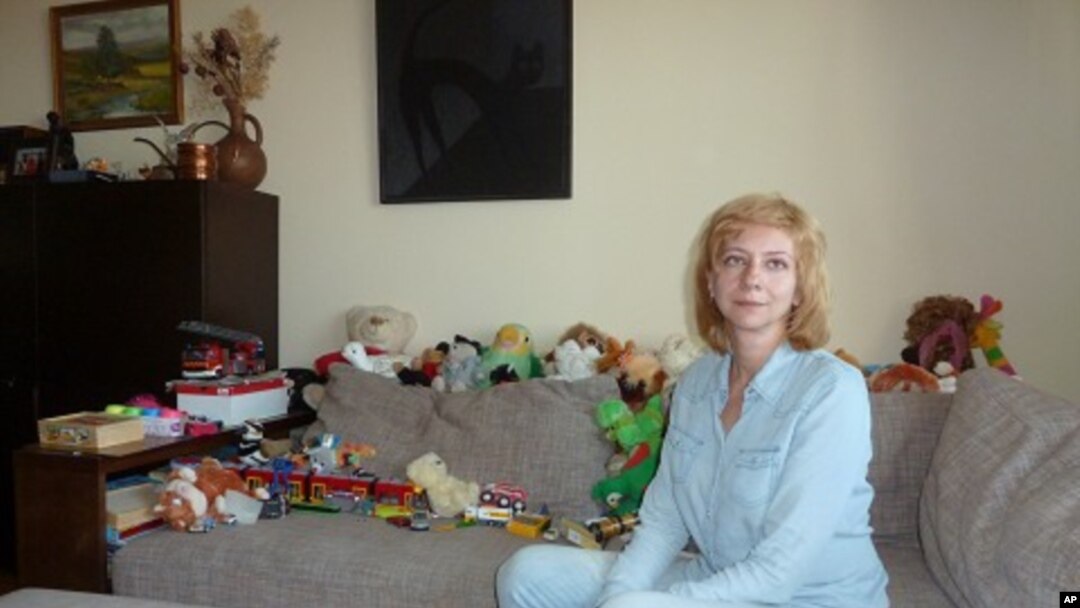After 17 years of living under a Soviet-style dictatorship, some people in Belarus still stand up to the state. Journalist Irina Khalip is one, and she keeps paying the price.
The last word heard from Irina Khalip was a furtive mobile phone call to Moscow’s Ekho Moskvi radio station - as she was being arrested in Minsk late on the night of December 19.
A few minutes earlier, riot police had broken the legs of her husband, Andrei Sannikov, the runner up in Belarus’ presidential elections. Khalip, a journalist, was taking her husband to the hospital.
But Belarus’ KGB had other ideas.
Restricted freedom
Sannikov, a former deputy foreign minister, is now serving a five-year prison sentence for organizing an anti-government protest. Khalip has just emerged from five-months detention - first in a KGB prison cell, then under strict house arrest.
Last month, a Russian journalist who interviewed her was detained, deported and banned from entering Belarus for five years. Police erased all recordings of the interview.
But VOA was able to sit down last week for a quiet talk with Irina Khalip over the kitchen table in her Minsk high-rise apartment.
Paranoia, fear and panic is how Khalip describes the reaction of President Alexander Lukashenko, this nation’s dictatorial ruler, to silent protesters who walk the nation’s sidewalks every Wednesday evening.
Yes, the fire is back in this fearless woman.
Personal agony

Irina Khalip during her interview with VOA's James Brooke
During the past 15 years, Ms. Khaliip has been beaten by police, has had computers and cell phones seized by the KGB, has had two newspapers closed beneath her, has won international awards for her anti-corruption reporting, has had two colleagues die under highly suspect circumstances, and has received very precise death threats.
But the brightly colored stuffed animals covering a sofa speak loudest of the personal agonies this 43-year-old mother has gone through since her arrest six months ago.
She has seen the state draw on old Soviet methods to try to destroy her family.
In January, when she and her husband were held in KGB isolation cells, the government tried to take their three-year-old son Danil away from his grandmother and place him in a state orphanage. The government of President Alexander Lukashenko only backed down in the face of world outcry.
Khalip charges the plan to take away their son had been devised as a way to pressure her husband.
The government finally demanded the boy and his 74-year-old grandmother undergo HIV, syphilis and psychiatric tests before the grandmother was granted custody. And after six weeks in jail, Khalip was released on January 30 to a strict form of house arrest.
House arrest
In the West, people under house arrest are often monitored electronically, through ankle bracelets. In Khalip’s case, two KGB agents were stationed around the clock in her apartment.
She says the men used her bathroom, her refrigerator, her teapot.
She was tightly restricted on what she could do in her apartment.
She could not write letters, answer the door, use the telephone, use a computer, approach the windows, or receive visitors other than her parents.
The hardest thing was to explain to her son Danil why strange men were living in her apartment and why his father did not come back from his business trip.
She told her son the KGB agents were good men, who were there to protect her. How, she asks, can you explain to a three-year old that the good people are in jail and the bad people are in government?
Legal victory
Last month she was convicted of organizing a protest against the government, but her new legal counsel won her a two-year suspended sentence. On leaving court, she told reporters the KGB agents would be leaving her apartment, and she was going to get it professionally disinfected.
Seated in the kitchen of her now disinfected apartment, Khalip says her priority is to rebuild her family.
She says she has learned that the symbol of a home is not a fireplace, not a kitchen table - it is control over your house keys.
Her concern now is for her husband, whom she has seen only twice in the past six months.
The last time was one month ago.
After leaving jail, she learned that for several weeks in January he was kept in a cell next to hers. Prisoners in the KGB prison are punished for shouting out their names. She said she laughed loudly, knowing her laugh carries through walls.


